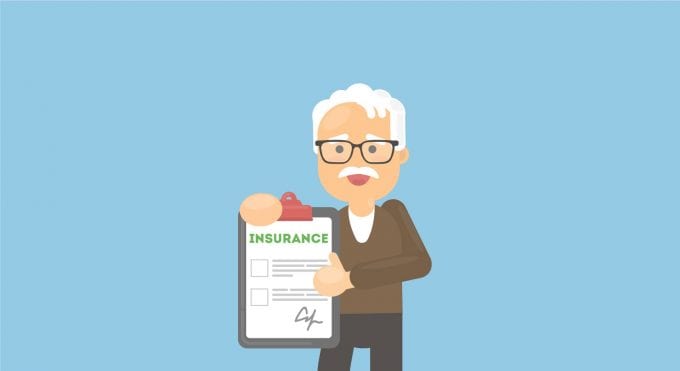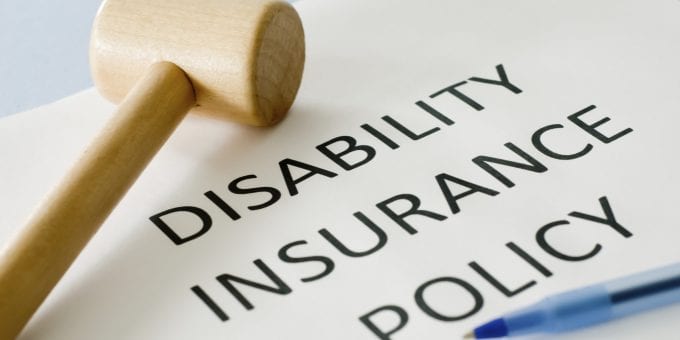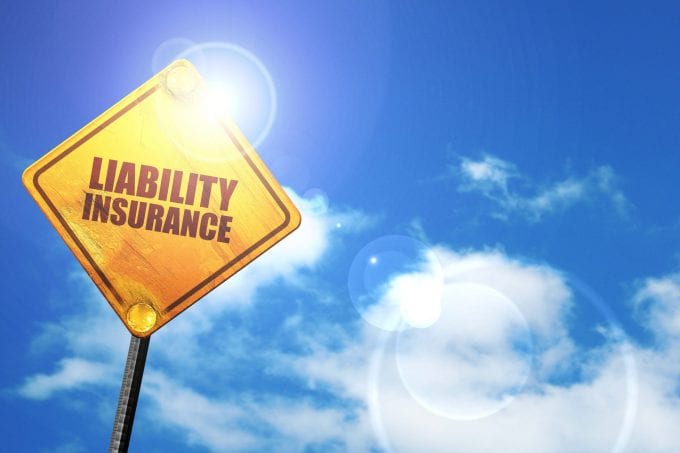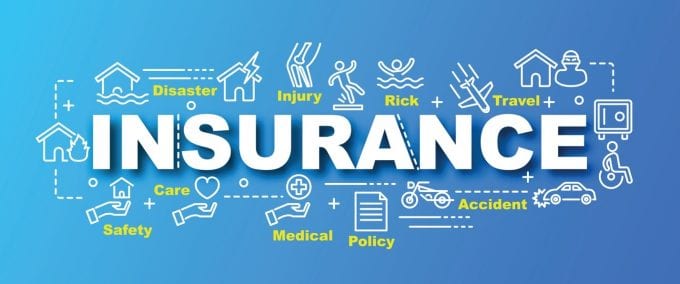Everyone faces risk from everyday events that can harm them – this means that from the time people are born, there’s a chance that they might receive harm from something or someone. Being harmed may mean having to get medical treatment and even be hospitalized for some time. The worst scenario that may develop is that you could die from the impact of that significant event. If you are the breadwinner of your family or an important staff member of a company, this could mean disaster for your family or for your employer.
This is why insurance was invented. It provides a level of financial protection to you and your beneficiaries so that if you get sick, they will be confined in a hospital or at home, or even if you die, they will receive a certain amount of money from the insurance company. This way, your loved ones or your employer will not have to worry about where to get money for your medical treatment, hospitalization, and even your death and burial.
Some kinds of insurance do protect you from a loss, but the loss could be financial rather than personal. Personal insurance encompasses life insurance, health insurance, disability insurance, and auto insurance. Business insurance is all about property insurance, commercial vehicle insurance, liability insurance, workers’ and compensation insurance.
To start off here is more important information about some of the most commonly known kinds of insurance available to the public.
1. Life Insurance
When people talk about life insurance, the first thing that comes to mind is the death of the insured. The insured is the person whose life will get “coverage”. What this means in layman’s terms is that if you are insured under a life insurance policy, your beneficiaries will receive money should something happen to you that is clearly listed in the policy as a risk.
You can buy your own life insurance policy with your own money (with your loved ones as your beneficiaries), or opt to have someone else pay it for you (such as your employer). The money that will be paid to buy that policy is called the “premium”. The person paying for the policy is called the “policyholder”.
Life insurance may or may not offer coverage for accidents, depending on which insurance company is offering insurance protection. This is why a policy will sometimes be labeled as “accident insurance” since it will only cover your compensation due in relation to an accident. You should talk this over with your agent since no one ever knows when an accident will happen to you. If the policy does not clearly state that you will be compensated in the event of an accident, and it doesn’t state what kind of accidents are covered, you may need to buy a policy that will cover you in case of an accident, to play it safe.
A positive aspect of modern life insurance policies is that you can use them as a form of the retirement planning tool. This means that you can get a life insurance policy that offers a form of savings so that as you grow older, your premium is paying for the policy’s savings component as well. Since the insurance company wants to make sure that you survive up to your golden years, this savings component makes the policy more attractive, especially if you are looking for more financial benefits from your insurance coverage.
If you are not sure if your policy offers retirement planning, you need to discuss this with your agent. Some insurance companies may offer “cash value” or “dividends” instead of stating outright that the policy has a retirement planning component to it. The cash value or dividends are part of the savings, so you can see that they can be used for retirement planning anyway.
2. Health Insurance

This kind of insurance is meant to protect the health of the insured person against illnesses and health disorders that the insured may eventually suffer from. It is different from life insurance in that the person covered (the insured) does not necessarily have to die to be given compensation. The health insurance coverage aims to provide the insured with a certain amount of money to help pay for any health conditions that may crop up as the insured gets older.
That is why it is called “health insurance” – it aims to keep the insured’s health at a normal level despite the illness or disorder. Like life insurance, you can pay for your own premium for a health insurance policy, or your employer may opt to pay all or part of the premium if they secure a health insurance policy for you.
3. Combination Of Life Insurance And Health Insurance

Some insurance companies may create their own types of life insurance and health insurance. Sometimes, this means combining life insurance features with health insurance features to produce a unique new form of protection. You would need to be experienced in qualifying for life insurance coverage and/or health insurance coverage to understand how this kind of insurance works. This is because some consumers may want to have a policy that they can afford, but which also provides them ample protection. Competition within the insurance industry is also quite intense, so insurance companies may need to come up with unique new products to be able to bring in more “prospects” or prospective customers.
4. Senior Life Insurance

Some people may believe in life insurance but may not have been able to afford it in their younger years. If you are a senior citizen, you may want to look into getting senior life insurance from Spectrum Insurance Group as you enter your golden years.
This kind of life insurance is meant to protect senior citizens only with a limited range of liability since seniors will probably be thinking about protecting their assets (for the benefit of their dependents). The limited liability insurance for seniors will help them plan for their burial expenses so that their dependents can focus on moving on with their lives after the senior has passed on.
Many people forget to realize that at the end of their life, there will be a funeral and final expenses. To address these concerns, many seniors consider a burial insurance policy. These burial insurance policies are simply smaller amounts of whole life insurance that are designed to help your family with all the expenses that come at the end of your life. Many popular insurance providers like Gerber Life, Lincoln Heritage, and Colonial Penn can provide coverage to you. It’s important to compare various companies and their pricing at a website such as Burial Insurance Pro.
5. Disability Insurance

Disability insurance allows the insured to receive a certain amount of compensation should the insured suddenly be rendered disabled and unable to work for a living. As this safeguards your income and provides a means of saving, it can help you plan for your retirement. This kind of insurance may also be bundled with life insurance and health insurance in the same kind of policy, depending on its marketing strategy. Since people may prefer to just pay for one policy, it makes sense to look into getting disability coverage that is indeed bundled with life insurance and health insurance.
6. Auto Insurance

You can also look into getting auto insurance if you drive, even if you are not the vehicle owner. Auto insurance, like the other insurance forms mentioned above, aims to provide coverage to the insured if he or she is the person driving at the time of the accident. The policy for auto insurance should also provide compensation should the vehicle sustain damage during the accident. Although auto insurance is not automatically bundled into disability insurance coverage, there may be some clauses in your auto insurance policy that would function like disability insurance too.
Now examine the type of insurance that you would need if you own or work for a small business:
7. Commercial Property Insurance

This kind of insurance is meant to provide financial protection for the owner of small business property. An example of small business property is the office building that your company or your employer owns, which is being used regularly for the business. A warehouse that stores the goods that your company or your employer sells could be another example of business property.
There are multiple risks that the business faces, including theft and natural phenomena such as hurricanes and tornadoes. The insurance will cover the loss of that business property so that the company or your employer will be able to rebuild what was lost. It also guarantees that the business will stay open to the public so that transactions will still be carried out regularly.
It should be clarified that some types of commercial property insurance also offer a form of “business interruption coverage”. This protects your earnings from the business so that even if something happens (like the office building getting wiped out by a hurricane), you won’t have to worry for a few months since you will have insurance proceeds to help your business stay afloat.
Not all types of commercial property insurance companies offer this extended kind of insurance, so you will need to consult your insurance agent regarding this aspect.
8. Commercial Vehicle Insurance

If your company has some vehicles that are exclusively used for the business only, then these vehicles can be insured through commercial vehicle insurance. This is a different kind of auto insurance in that commercial vehicle insurance will cover vehicles used for business while auto insurance will cover your personal vehicles. You should be clear about this because you might get into difficulties if you declare your personal vehicle as a commercial vehicle to the insurance company. To avoid problems, simply assign coverage for commercial vehicles and make sure you don’t use your personal vehicles.
9. Liability Insurance

There are some sub-categories for liability insurance, which is a form of business insurance. Professional liability insurance is designed to protect professionals who render a service (rather than sell a product) from lawsuits related to their service. Product liability insurance covers any malfunctioning product that the business has sold to a customer. Then there is general liability insurance, which gives coverage over property damage, injuries, medical expenses, and any expenses related to lawsuits.
Since the business is being insured, you might want to look for a comprehensive form of liability insurance that combines features of professional liability insurance, property liability insurance, and even general liability insurance into one package deal. This way, you won’t have to pay for each and every kind of liability insurance mentioned here.
10. Workers’ Compensation Insurance

In the US, state laws regarding insurance may vary from state to state. So it can be a bit more difficult to ensure the business, and will probably cost you more than paying for your personal insurance. However, there are indeed state laws that make some kinds of insurance mandatory for your company. One example of mandatory insurance is workers’ compensation insurance. You might also be obliged to secure unemployment insurance and even disability insurance for your employees.
There is no magic formula for determining what sufficient insurance for your business is. It may depend on how much your business can support insurance payments every year. It would also be influenced by how many employees you need to provide coverage for. However, a basic level of coverage is better than no coverage at all, making sense to at least comply with the minimum provided for under the law. As your business grows, so do the risks, so you may need to reassess your insurance coverage for the business and its employees every year.
Final Takeaway

Getting insurance does not have to be a major headache when it is done right. You will need to consult your insurance agent when you feel you can finally afford insurance coverage. Personal insurance covers life insurance, health insurance, disability insurance, and auto insurance. Business insurance is meant for small businesses. It covers commercial property insurance, commercial vehicle insurance, liability insurance, and workers’ compensation insurance. You should advise your insurance agent when you can only afford a limited amount of coverage, depending on your financial capacity to pay.
It is the job of your agent to compute for you how much you should be paying versus how much you can afford every year. The good news is that you can initially get a smaller coverage for any insurance and then have your policy coverage enhanced in the future when your finances are more stable. You will then be able to afford other expenses related to your life, family, and work. Hopefully, you will also be able to afford more extensive coverage over time.










